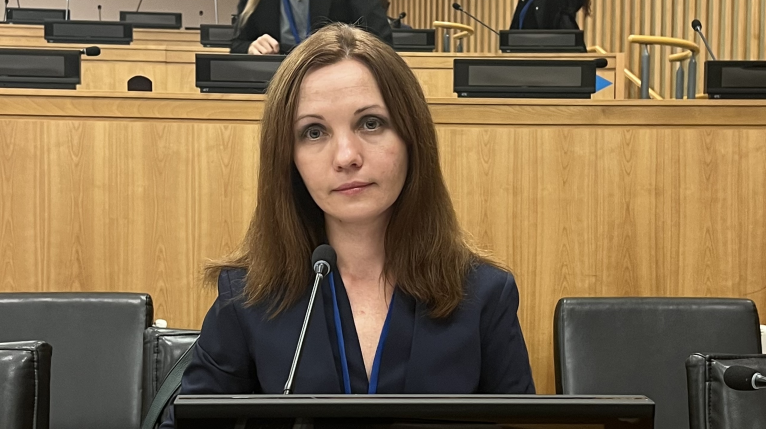Statement by representative of the Russian Federation Ms.Victoria Kardash in the Second Committee of the 77th session of the UN General Assembly under agenda item 21 “Groups of countries in special situation”
Mme. Chair,
Unfortunately, the recovery of LDCs and LLDCs from the consequences of the COVID-19 pandemic and the achievement of the goals of the 2030 Agenda for Sustainable Development is not progressing as fast as we would like. Starting in 2020, all countries are going through turbulent times, but for the most vulnerable of them, which are the LDCs and LLDCs, overcoming the current challenges is especially problematic.
As early as 2024, the period of implementation of the Vienna Program of Action for LLDCs ends, the goals of which are unlikely to be achieved. In 2021, the negative dynamics of GDP continued in Afghanistan, Nepal and Bhutan. Most African LLDCs grew at extremely low rates. Despite some progress in returning to a sustainable growth path in a number of countries, in particular in Central Asia, LLDCs still face challenges such as the lack of modern and sustainable infrastructure, including transport, energy, digital, low degree of production diversification, and dependence on commodities. In the new program of action, preparation of which should begin soon, it will be necessary to continue to keep the focus on these areas and find new solutions for their ultimate development.
Mme. Chair,
The Russian Federation also intends to support the implementation of the Doha Action Program for the LDCs, approved this year, in accordance with national priorities and strategies. In particular, we consider it necessary to make every effort to ensure food, energy and financial security in the LDCs, develop education and healthcare, and create favorable conditions for trade, including in countries graduating from the category of LDCs.
We look forward to progress on issues such as the establishment of a regional and subregional system of stockholding in LDCs, an online university and other equivalent platforms to support distance higher education, strengthening the existing multi-hazard early warning system, and establishing and implementing investment promotion regimes for LDCs. Solutions proposed in these areas should be based on circumspect strategies of attracting financial and technical assistance, since, as we see in practice, often due to the lack of necessary funds, such mechanisms appear to be not viable.
We should not forget that both categories of countries face the most important task of developing the material and production capacities based on innovative technological solutions and implementing the social and climate agenda. Increasing investment in sustainable infrastructure, which must be accessible to all groups of the population, remains a key goal. This approach will enhance the capacity of LDCs and LLDCs to address current and future challenges.
We call on the UN and partners to increase cooperation for LDCs and LLDCs in order to promote their own pragmatic development priorities and ensure their equal and fair growth based on the principle of “leave no one behind”. For our part, we will continue to provide these countries with all possible assistance both on a bilateral basis and through UN organizations, programs and funds.
Thank you.
